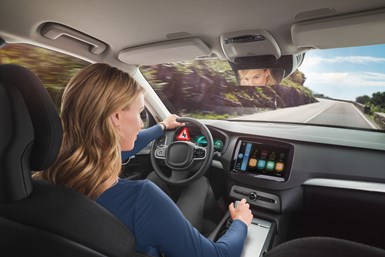Bosch Making Big Commitment to AI
Not only developing the tech, but making sure its people are trained in the ethics related to using it
While there are lots of people talking about artificial intelligence (AI), machine learning and the like for a variety of applications—including automated driving—at CES Bosch made it clear that if it isn’t going all in on AI, it is solidly in the game, as Michael Bolle, member of the Bosch board of management stated: “Bosch aims to become an innovation leader in the field of AI.”

On the way to automated tech, Bosch is investing heavily in AI development and training. (Image: Bosch)
More Than Talk
And the proverbial money where his mouth is is there: the company is undertaking a training program over the next two years to make 20,000 of its associates ready for AI—clearly, no small investment, that—and the company is making an annual spend of 3.7-billion euros in software development. It is spending some 100-million euros in the construction of a campus dedicated to AI in Tübingen, Germany, which it plans to have completed at the end of 2022. Approximately 700 AI experts will be based there.
The AI training program is rather innovative not only for an automotive supplier, but even for an OEM.
There are training formulas developed for managers, engineers and AI developers.
Ethical Training
One of the key parts of this training: guidelines to assure that AI is being used responsibly. Yes, this means the company is going to be training in the areas of security and, importantly, ethics.
“Anyone who has internalized technical and ethical principles knows how important data security and sovereignty are,” said Bolle, who added, “In a way, trust is the product quality of the digital world.”
And for companies developing automated driving tech, trust is key.
RELATED CONTENT
-
When Automated Production Turning is the Low-Cost Option
For the right parts, or families of parts, an automated CNC turning cell is simply the least expensive way to produce high-quality parts. Here’s why.
-
On Electric Pickups, Flying Taxis, and Auto Industry Transformation
Ford goes for vertical integration, DENSO and Honeywell take to the skies, how suppliers feel about their customers, how vehicle customers feel about shopping, and insights from a software exec
-
Things to Know About Cam Grinding
By James Gaffney, Product Engineer, Precision Grinding and Patrick D. Redington, Manager, Precision Grinding Business Unit, Norton Company (Worcester, MA)


.jpg;width=70;height=70;mode=crop)






